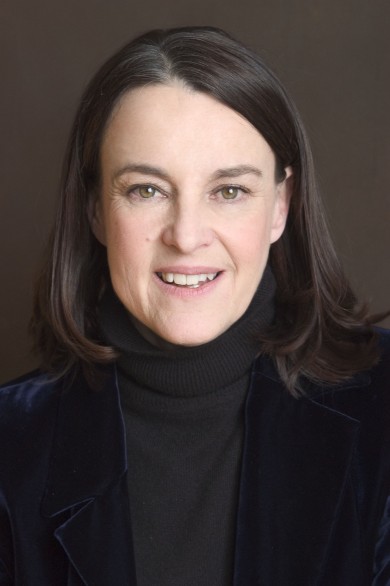Libby Larsen’s wide-ranging music receives fine advocacy at Frost

Libby Larsen
The University of Miami Frost School of Music celebrated composer Libby Larsen with an eclectic program of her works Tuesday night at Gusman Concert Hall. In addition to stints as an educator and recording producer, Larsen has created over four hundred scores that span solo and chamber, orchestral and music theater genres.
In pre-concert remarks, Larsen indicated that she has always wondered where music comes from. Her conclusion was that music is inspired by American culture and language, comparing her creative response to that of pop icons Bob Dylan and John Denver.
In a program that focused on Larsen’s vocal works, two instrumental pieces were the best examples of scores based on indigenous cultural events. Gavel Patter (2004) for piano, four hands, takes its rhythms from auctioneering patter. Her attempt to translate the pitches and timing of an auctioneer into purely instrumental form traverses boogie woogie, the ragtime of Scott Joplin and the folk based exotica of Louis Moreau Gottschalk. This delightful score is a showcase for the two keyboard players and J.B. Floyd and Alan Johnson had a field day with it, playing with thrusting impetuosity and clarity.
Holy Roller (1997) is a tour de force for saxophone. Based on the tension and release of a revival sermon, the piece gives equal measure to the Southern hymnal, bee-bop, third stream modernity and New Orleans jazz. Somewhat episodic and elongated, the score still packs a punch, particularly in the explosive performance of Dale Underwood. His big, rounded tone and flawless command of the instrument at its highest and lowest registers was stunning.
Larsen’s most recent work Like Blind Men Tapping in the Dark (2010) for marimba with two players is an entertaining essay in repetitive minimalism that has the virtue of not overstaying its welcome. The rhythmic incisiveness and crisp articulation of Svet Stoyanov and Maria Chlebus made a strong case for the score.
Larsen sets English texts with the skill and musical imagination of a Ned Rorem or Samuel Barber. Three Songs from My Antonia (2000) were appealing examples of her attraction to American vernacular music. Landscape I: From the Train was a serenely lyrical idyll while The Hired Girls sang with melody reminiscent of Stephen Foster. The finely honed lyric tenor of David Tayloe and expert accompaniment of Johnson, director of the Frost Opera Theater, projected the music naturally, without operatic overkill.
Cowboy Songs (1979) was even more Americana, paying homage to Aaron Copland and Rodgers and Hammerstein in equal measure. Soprano Carey Goldenberg’s unforced performance captured the irony of the text with the stage presence and vocal ease of a Broadway veteran.
Try Me, Good King: Last Words of the Wives of Henry VIII (2000) was an ambitious song cycle that did not always hit its mark. The emotion-tinged final words of the king’s five wives prior to execution is mostly crafted in wide leaping recitative and astringent keyboard writing devoid of discernible form. The piece’s best moments are the hymn-like strains of Tudor Rose, a poem about Jane Seymour and the light, graceful speech of Anne of Cleves. Jennifer Tipton’s extended soprano range easily encompassed the wild vocal leaps and mini-operatic vignettes of this challenging score. Yueh-Yin Liao was the authoritative and sensitive pianist.
Four scenes from Larsen’s 1990 opera Frankenstein, The Modern Prometheus were problematical when presented out of context and bereft of the orchestral score. The two piano and percussion reduction seemed only a musical blueprint. In the Prologue, Captain Robert Walton’s monologue of despair, accompanied by death chimes, seemed imposing. Jeffrey Wienand’s impressive baritone and absolutely clear diction (the best of the evening) commanded attention. A simple, repeated figure in the keyboard line and quintet of voices in the climactic trial and death of Justine grew to a dramatic climax. Kate Kupchik’s charming light soprano stood out in Elizabeth’s fragments.
It was clear from these truncated excerpts that Frankenstein is a music theater piece of considerable impact. Having given it a trial run, Johnson and the Frost Opera Theater should think about staging the complete work with Larsen’s full instrumental complement. The composer and the hard-working student vocalists deserve an extended showcase for this ambitious score to be heard at full strength.
Posted in Performances
Leave a Comment
Wed Jan 26, 2011
at 3:16 pm
No Comments






